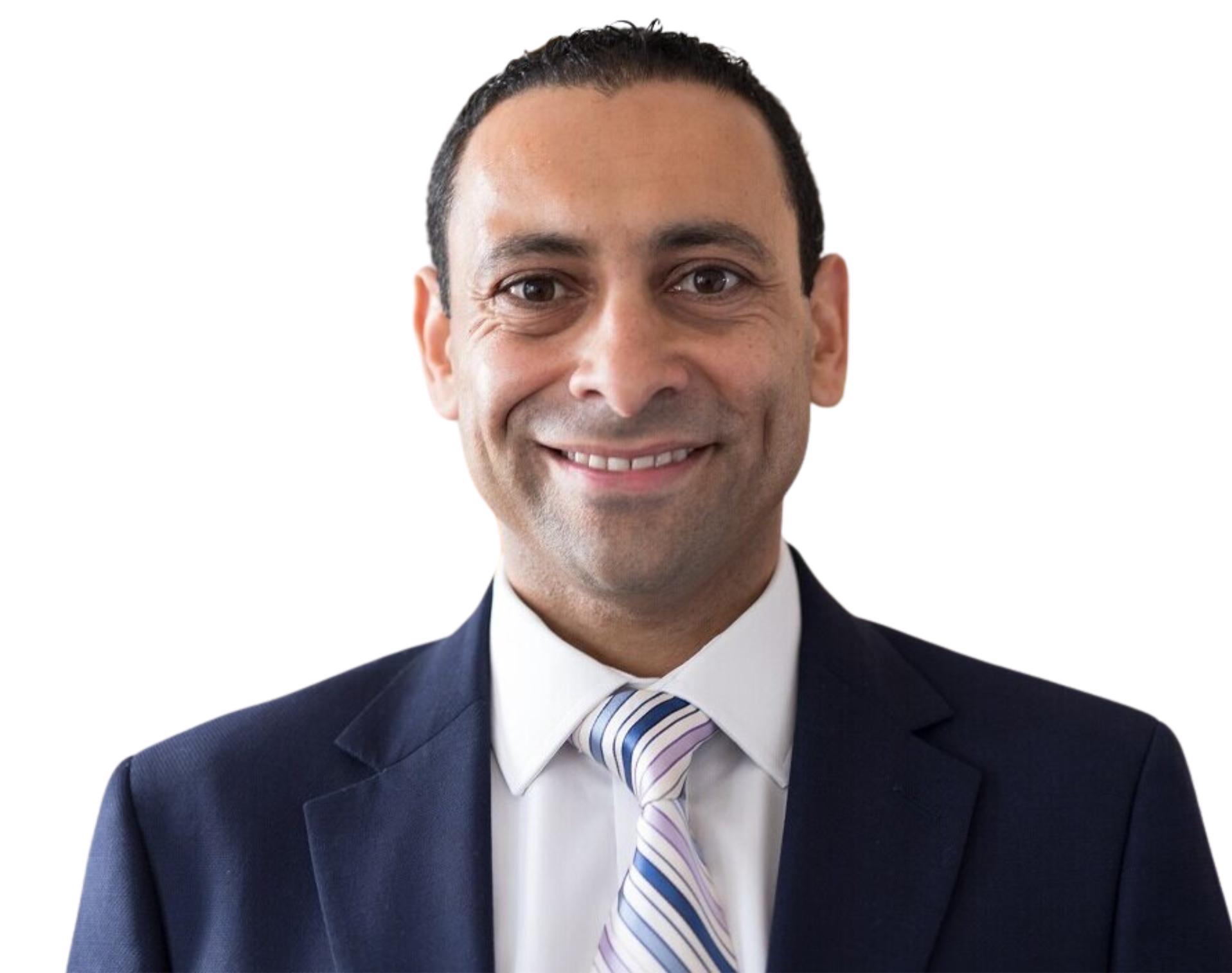
Dr Peter George
Specialist expertise: Interstitial Lung Diseases, Pulmonary Fibrosis, Sarcoidosis, Post-COVID Lung Inflammation and Scarring, Autoimmune-related Lung Diseases, Breathlessness, Acute and chronic cough, Respiratory Medicine.
Find out more about the differences between Interstitial Lung Disease & COPD from our leading Respiratory Consultant Dr Peter George.

Interstitial lung disease, or ILD, describes a group of lung disorders that cause inflammation, thickening and scarring in your lungs. The British Lung Foundation estimates that around 150,000 people in the UK live with ILD, leading to progressive breathlessness, dry cough and other debilitating respiratory symptoms.
At OneWelbeck we offer specialist assessment, diagnosis and treatment of interstitial lung disease by world-leading consultant respiratory physicians. Dr Peter George oversees the largest ILD service in Europe and is at the cutting edge of research, investigation and management of interstitial lung disease. Dr George works with a highly skilled and experienced multi-disciplinary team to accurately diagnose and treat ILD, support your healthy lung function and maintain your general wellbeing.
Interstitial lung disease, or ILD, is a term that refers to a group of more than a hundred lung conditions that all cause inflammation and progressive stiffening and scarring of your lungs, known medically as fibrosis.
The lungs are made up of a network of tubes that end in tiny air-filled sacs called alveoli. The alveoli work to transfer essential oxygen into your bloodstream so it can be sent to cells around the body. In ILD, the lung tissue around the air sacs (known as the interstitial tissue) becomes gradually scarred and thickened, which makes it increasingly difficult to get oxygen into the blood. Progressively it becomes more difficult to breathe, and the supply of oxygen to your vital organs is reduced, causing symptoms including breathlessness, dry cough, weakness and fatigue.
Anyone can develop ILD, but it is most common in older adults, with men and women equally affected. The causes of ILD include:
‘’Unfortunately, IPF is often missed or misdiagnosed as COPD. If your persistent symptoms are not responding to COPD medications, such as inhalers, consider asking your GP for a specialist opinion, especially if you have a family member with IPF.’’
The symptoms of ILD vary depending on the type of disease, the severity of your condition and your overall health and wellbeing. It is not unusual to live with ILD and other lung conditions, such as COPD or asthma, which can affect your symptom profile. Some common symptoms and signs of ILD include:
Some people with ILD may have no symptoms in the early stages of the condition. The lung disease can be picked up during a routine chest X-ray or CT scan.
If you experience symptoms or signs and are worried about ILD, make an appointment with your doctor or the respiratory team at OneWelbeck for expert assessment.
Quick and accurate diagnosis of interstitial lung disease and timely specialist treatment can preserve your lung function and protect your future health.
ILD causes scarring and stiffening of the lung tissue. In some cases, this lung damage may be irreversible. For this reason, prompt diagnosis and treatment to prevent ongoing inflammation and fibrosis are critical to getting the best outcomes for patients.
Unfortunately, ILD can be missed by medical professionals or misdiagnosed as asthma or chronic obstructive pulmonary disease or COPD. This problem is compounded by the fact that some people can live with both lung conditions simultaneously. Dr Peter George said:
‘‘Too many of our patients spend many years in the community misdiagnosed with asthma or COPD. However, it is vitally important that patients are identified accurately as soon as possible. With early treatment tailored to each patient’s ILD, we have a better chance of preserving as much of their lung function as possible. This is important as lung scarring is irreversible and so the earlier it is treated, the better the outcomes.’’
Our specialist respiratory team at OneWelbeck have extensive experience in recognising, diagnosing and treating interstitial lung disease. We work with an expert team of pathologists and radiologists to interpret and analyse the investigations.
Investigations for interstitial lung disease can include:
The right treatment for your Interstitial Lung Disease (ILD) will depend on the underlying cause, the severity of your disease and your general health. It is crucial to have an accurate diagnosis to ensure the most effective treatment programme is selected.
Our specialist multi-disciplinary team will develop a bespoke treatment plan to manage your symptoms and slow down the progression of the disease.
The treatment options include:
Avoiding irritants: Lung irritants, such as cigarette smoke, air pollution, toxins, and some medications, can cause ILD. Changing your lifestyle to quit smoking and avoid irritant chemicals can help slow the progression of ILD and reduce your symptoms.
Medications: Depending on the underlying cause of your ILD, your consultant may prescribe medication to help reduce inflammation, suppress the immune system, or improve breathing. Drugs used include:
Oxygen: Oxygen supplementation, when needed, can help you breathe more comfortably.
Pulmonary rehabilitation: Specialist physiotherapists can support your pulmonary rehabilitation. They can help with exercise training, breathing techniques and mucous clearance. They can also help you learn how to manage your condition to improve your breathing, function and quality of life.
Lung transplantation: If your lung disease is advanced, a lung transplant may become necessary.
Chronic Obstructive Pulmonary Disease or COPD and Interstitial Lung Disease (ILD) are chronic lung diseases that can cause difficulty breathing. However, the conditions differ in their underlying causes and the parts of the lungs that are affected.
COPD is a progressive lung disease that makes it difficult to breathe. COPD typically includes two related conditions: emphysema and chronic bronchitis. Chronic bronchitis is characterised by a chronic cough and excessive mucus production. In emphysema, the air sacs in the lungs are progressively destroyed, leading to a decrease in the lungs' ability to transfer oxygen into the bloodstream.
Interstitial Lung Disease affects the lung tissue between the air sacs, known as the interstitium. The interstitial tissue around the alveoli becomes inflamed and thickened, making it difficult for the lungs to expand and contract properly, leading to shortness of breath and decreased oxygen transfer from the lungs to the bloodstream.
COPD is most commonly caused by smoking, but it can also be caused by long-term exposure to other lung irritants, such as air pollution, chemical fumes, or dust. COPD is a chronic and progressive disease which worsens over time and can lead to severe breathing difficulties, disability, and even death.
Accurate diagnosis of COPD and interstitial lung disease requires comprehensive evaluation by an experienced healthcare professional. Your specialist respiratory team will use a combination of your medical history, a detailed physical examination, and selected diagnostic tests to identify the underlying condition.
If your COPD is linked to a dry cough, does not respond to COPD medications such as inhalers, or if you have a family history of idiopathic pulmonary fibrosis, you should ask your doctor for further investigations or referral to a specialist unit with expertise in the management of people living with ILD. Dr George said:
‘‘Idiopathic pulmonary fibrosis can develop in people as young as 40 years of age if they carry a genetic predisposition. It is therefore important that individuals who develop persistent, unexplained breathlessness or cough and who have a family member affected by idiopathic pulmonary fibrosis should be assessed so that the condition can be excluded.’’
Dr George continues to be highly active in basic science and clinical research recruiting patients to trials of new therapies, supervising PhD students and publishing his research in the most prestigious medical journals.